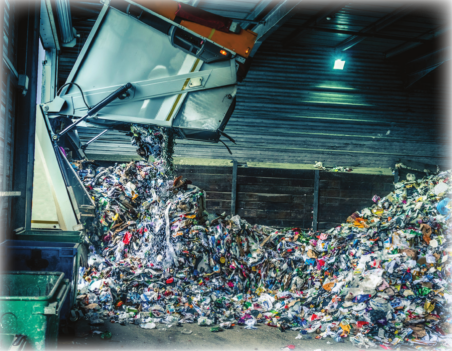New Hampshire lawmakers have advanced a bill that would explore a policy tactic putting producers of packaging, plastics and other types of waste on the hook for environmental impacts throughout a product’s life cycle.
Extended producer responsibility, or EPR, shifts the financial burdens related to waste management away from state and local governments and back onto product manufacturers. House Bill 253, voted unanimously as “ought to pass” by the House Environment and Agriculture Committee on Tuesday, would establish a committee to study EPR as a means of providing relief to municipalities for the costs for solid waste disposal.
EPR is a framework gathering steam nationally, and one that’s been well developed internationally. EPR is known across Europe in the context of packaging, batteries and electrical equipment. Similar laws have also been put into place in Japan, South Korea, Singapore, Israel and India.
In 2021, Maine became the first U.S. state to pass a law regarding EPR for paper and packaging waste. Once the program is up and operating, producers will be required to finance stewardship organizations by paying into a fund based on the amount and recyclability of packaging associated with their products. The funds will be used to reimburse municipalities for recycling and waste management costs, and future investments in recycling infrastructure.
California, Oregon and Colorado have since enacted EPR legislation as well.
When the House Environment and Agriculture Committee discussed House Bill 253 in February, Rep. Peter Bixby noted the many EPR laws both in the U.S. and internationally that already exist for packaging, single-use plastics, beverage containers, electronic waste, batteries and more. Rather than reinventing the wheel, he said, it would make sense to form a committee to study what’s out there and possibly adaptable in New Hampshire.
Bixby, a Dover Democrat, said various industry groups have expressed interest in getting a seat at the table in future discussions. In online testimony for HB 253, letters were submitted from the American Forest and Paper Association and the Plastics Industry Association.
“Because the idea of EPR is those producers take responsibility, we want to make sure we have them in the discussion so they can suggest the ways they can best be able to take responsibility,” he said.
Rep. Barbara Comtois, R-Center Barnstead, wants the state to focus EPR efforts on materials with the highest toxicity. “Go after the most toxic waste first,” she said. “That’s really what we’re trying to eliminate in our landfills.”
— HADLEY BARNDOLLAR/NEW HAMPSHIRE BULLETIN